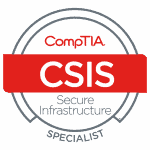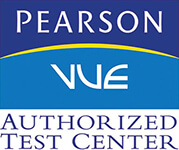Becoming a Network and Computer Systems Administrator
When you train as a Network and Computer Systems Administrator, you’ll gain the fundamental skills you need to pursue your new IT career. Upon graduation, you’ll enter the professional world with hands-on training in the following 4 core areas and top it off with additional Cisco networking knowledge.
1. PC Repair and Maintenance
Train in the fundamentals of PC Repair and Maintenance and learn the skills to troubleshoot, diagnose, and fix PC hardware issues. Employers require well-rounded IT personnel who are able to not only deploy a network and fix software issues but who can also make sure that the basic business hardware is running smoothly.
2. PC and Network Security
Learn the essentials of network and cybersecurity. You’ll get trained in the essential principles of network security and risk management. You’ll also be able to perform network threat analysis, configure network systems to secure applications, and understand the policies and regulations around network security.
3. Networking Fundamentals
Learn the fundamentals of network setup, maintenance, and repair. You’ll be able to explain the purpose of a range of networking concepts and implement them appropriately. You’ll also know how to implement proper network policies to ensure stability and business continuity. In addition to other skills, you’ll also get trained in proper cabling and physical network storage techniques.
4. CompTIA Stackable Certifications
The PC Repair and Maintenance course, paired with the Networking Fundamentals course also prepares students for their CompTIA A+ and Network+ certifications. Together these two courses in the Infrastructure Specialist pathway will help our students earn their CompTIA IT Operations Specialist credential.
Additionally, earning the CompTIA A+, Network+, and Security+ certifications helps our students break into the CompTIA Cybersecurity Career Pathway by gaining the CompTIA Secure Infrastructure Specialist credential.
5. Operating System Fundamentals
Get the skills to work confidently with the Microsoft Operating System. Once you graduate, you’ll be well versed in the fundamentals and nuances of the Microsoft OS. You’ll learn to perform key tasks such as managing devices, operating system maintenance, configuring user accounts, and installing software.
6. Advanced Networking
These final two technical courses help students develop a comprehensive foundation for designing, securing, operating, and troubleshooting modern computer networks, on the scale from small business networks to enterprise networks, with an emphasis in hands-on learning and essential career skills like problem-solving and collaboration in a Cisco Networking environment.
Get Program Detail Now!
















